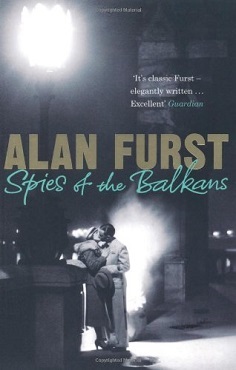Vandana Singh, “Wake-Rider.” Lightspeed, December 2014.
A well told, intriguing space opera short story that makes me want to read more in this universe.
Michael Swanwick, “Passage of Earth.” Clarkesworld, April 2014.
A nicely weird first contact science fiction story, in which contact is not just made with the alien outside, but also the alien inside. Very new wavey without being old fashioned.
Rachel Swirsky, “Grand Jeté (The Great Leap).” Subterranean, Summer 2014.
There’s always been a strong Jewish current in science fiction of course, Avram Davidson for one, but what struck me reading through so many short stories in the last couple of weeks is how much more comfortable science fiction has become with matters of cultural identity, that you don’t need to pander to a percieved need for universalism by making sure all your heroes have good, decent Anglosaxon names. Rachel Swirsky’s story here is a good example of how having Jewish characters with a strong Jewish identity can be done while telling a universal science fiction story that’s enriched by this, without needing an excuse for them being Jewish. This is not another Golem story.
All of which is just to distract myself from the emotional content of this story; like Swirsky’s Hugo nominated short story “If you were a dinosaur, my love” this is a story about grief and suffering, in which a father has to cope with the death of his wife and the slow dying of his daughter from cancer, his daughter has to cope with her own dying and her father’s suffering, while the robotic copy he has made from her has to deal with her own emotions in all this. It’s a gut punch of a story, something that creeps up to you and then BAM, hits you in the feels.
As you may gather from the title, ballet too is a key ingredient of this story, as the dead mother used to be a ballerina, while the daughter sneaks into her abandoned studio to watch her old performances on dvd.
Bogi Takács, “This Shall Serve as a Demarcation.” Scigentasy: Gender Stories in Science Fiction and Fantasy #6, July 5, 2014.
On an alien planet, where the land and sea are locked into continuous battle with each other, yet in equilibrium, human settlements have learned how to use this battle to wage war against themselves, which in turns hurts the planet. Bogi Takács is “a neutrally gendered Hungarian Jewish author”, so it’s tempting to call this story a trans/genderqueer metaphor, the sea and land standing in for that battle of genders that isn’t a battle, the damage done for the damage that can be done by others or yourself when denied your own gender identity. But science fiction is always about metaphors made concrete and you don’t need to know what all this really means to appreciate its queerness, in the best sense of the word. It’s hopeful and joyful and a good palate cleanser after Swirsky’s heavy trip.
